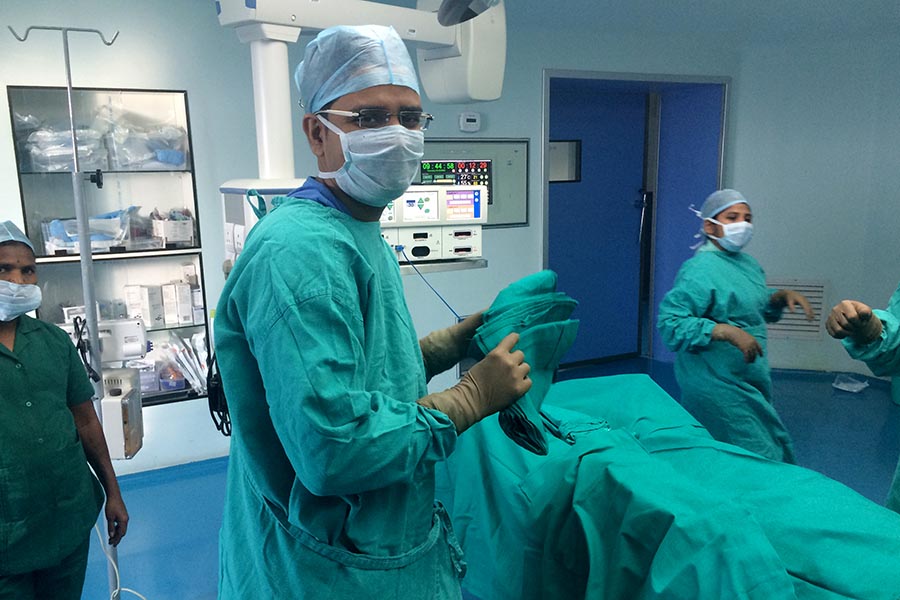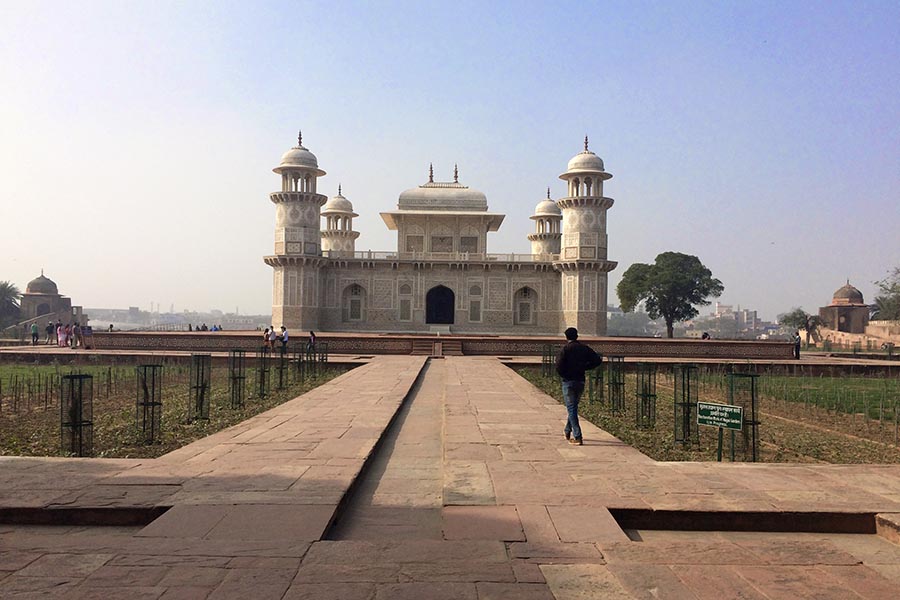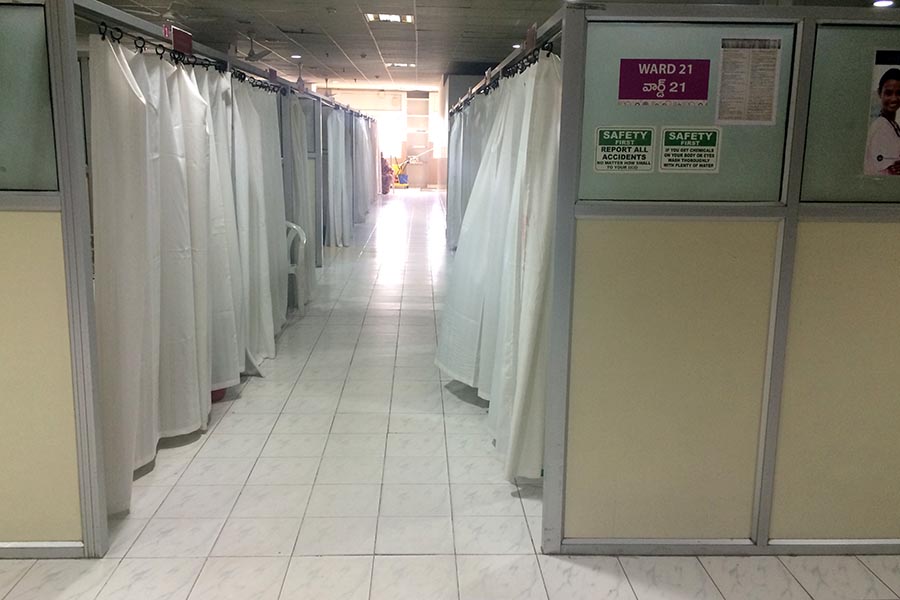International Experience

Jeffrey Douaiher, MD
As a fourth-year resident in 2011, Filipe Sobral, MD, traveled to Hyderabad, India, for a six-month general surgery rotation. A majority of his time was spent at Indo American Hospital, a newer institution that focused mainly on cancer patients.
“I was somewhat surprised to see that the hospital had access to so many of the tools that are available in the United States. Things like the Harmonic and Ligasure were readily available, as well as monopolar and bipolar cautery. The anesthesia tower and cart were very modern as well. This facility had access to virtually all the resources available at a major teaching institution back home. The main difference being that powered instruments like the harmonic and the ligasure were recycled, cleansed, autoclaved and reused,” said Dr. Sobral.
The patient volume was impressive – there was ample opportunity to be involved in 4 to 6 cases per day, six days a week. There was a good mix of cases including buccal mucosa cancers, thyroid, esophagus, breast, gastrointestinal stromal tumor, colon and cervical cancers. Several patients had advanced stages of cancer, the majority of which Dr. Sobral had only read about but had never seen.
“The surgeons and staff were very busy but routinely went out of their way to make sure the residents were learning and having a positive, worthwhile experience,” he said.
The culture of an attending assisting a resident through a case did not exist like it does in the U.S. One of Dr. Sobral’s most salient experiences came at the beginning of the rotation from a cervical lymph node biopsy. “Even a minor case performed independently in a foreign country can afford trainees with a level of professional maturity that is difficult to match during training back home. The scrub tech, circulator and nurse anesthetist spoke broken English and I spoke even less of the local Telugu language. That lymph node biopsy suddenly became the summation of my first three years of residency. Later during my time abroad, I also had the opportunity to take more junior residents through a modified radical mastectomy. After that experience, I realized that I would never again forget the steps of the procedure. When I rounded on that patient in the ward over the ensuing days, I felt the meaning of patient ownership.”
In addition to myriad surgical opportunities, Dr. Sobral was involved in clinical research and presented his research at national surgical meetings in the U.S.
“The international experience during general surgery residency was invaluable and unforgettable and I feel very fortunate to have had the opportunity to partake,” he said.

Hyderabad, India
Jeffrey Douaiher, MD, arrived in Hyderabad, India, in early December 2015 for a one-month rotation. He was greeted with warmth and great hospitality.
“Everyone wanted to include me in cases, involve me in educational activities, show me techniques, show me interesting diseases, and most importantly share Indian food. It was important for my host to always make sure I had a full and satisfied belly!,” Dr. Douaiher said. “Everyone made sure I was surrounded with good company and I quickly made friends, with whom I still touch base almost daily to this day.”
In the operating room, esophagectomies were performed almost every other day if not every day during his rotation, which he said “was impressive!” Women presented with breast cancer at progressive stages and even if it was early or ductal carcinoma in situ, they invariably all undergo modified radical mastectomy in fear of being lost to follow up. Overall, the disease he saw was much more aggressive that what he’d seen in the U.S.

During a patient’s hospital stay, physicians depended much less on labs or imaging, than on physical examination and clinical acumen to decide treatment plans; million dollar workups are an unaffordable luxury. The general surgeon in India, is truly a jack of all trades, he said. “I saw the same surgeon perform head and neck operations, chest operations, whipples, orchiectomies, and hysterectomies. Surgeons are truly general surgeons and can basically treat most surgical things. Of note, I got to do my first TAH-BSO (total abdominal hysterectomy, bilateral salpingo-oophorectomy).”
In India, even the youngest of residents were well versed with the latest surgical guidelines from both the United States and Europe. “There was an unquenched thirst for knowledge and everyone was quick to cite the latest trials (even those that are pending/in progress); and there was the constant question to me in the operating room: ‘is this how you do it in the U.S.?,’ ” said Dr. Douaiher.
The physicians in India were so highly respected by the patients and their families to the point of adoration. “Patients and their family members would kiss their surgeon’s hand in gratitude, listen intently when they talk, never talk back or complain,” he said.
Dr. Douaiher’s experience made him appreciate the order, resources and technologies that are available in the U.S. However, surgical principles are universal. Even in economically challenged societies, surgeons uphold their standards of excellence and give their best care to patients, while following universally agreed upon guidelines. Furthermore, he said, being a bit more creative, adjusting to the patient population and its demands might take you slightly off the book, but can prove to be beneficial and sometimes necessary. A good and experienced surgeon always has tricks up their sleeve when tricky situations present themselves.